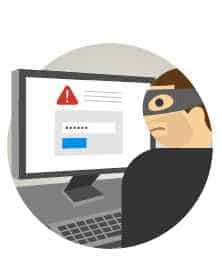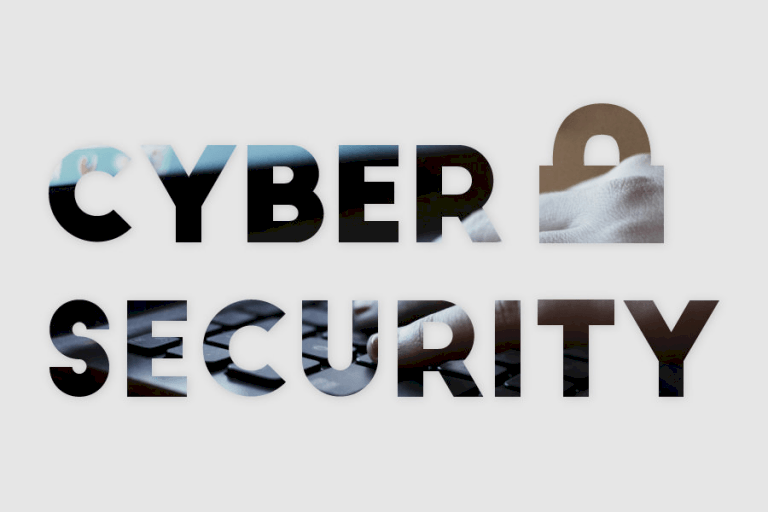Are Your Passwords On The Dark Web?

What is the dark web?
Ever wondered what is the dark web? The dark web is a sector of the internet that can only be accessed with specific software, known as the Tor browser. Dark web users enjoy a high level of anonymity as their physical location is untraceable and so websites, forums and marketplaces found in this corner of the internet attract cybercriminals and cons from all over the world. These criminals buy and sell a broad range of stolen data and illegal goods, often without consequences.
The dark web and data breaches
Your data has been stolen, but you won’t know about it until long after the company you have trusted with your private information notifies you that they have fallen victim to a security breach — by which time, the damage may already have been done.
It seems that barely a week goes by before another company reports they have been hacked and that private customer data has been stolen. Personally identifiable information including contact details, financial account data and login credentials are popular targets of cybercriminals who are able to sell such information on the dark web for varying sums of money.
You cannot stop sites from being hacked, but you can always take proper precautions to limit the damage done by a data breach. One handy tool you should certainly consider taking advantage of is a password manager.
A password manager is a software application designed to store and manage online credentials. These passwords are stored in an encrypted base and locked behind a master password and can play a significant role in protecting your personal information from prying eyes even after your information is on the dark web.
Benefits of using password managers
There are many ways in which a password manager can improve your online security:
You don’t have to memorise your passwords:
Using a password manager, all you need is to remember the master password to unlock your password vault. Should you opt for a cloud-based password manager, you can easily access your password vault anywhere, on any device.
They auto-generate highly secure passwords:
Password managers will always ask you if you would like to use an auto-generated password whenever you build a new account with a website or application. These randomly generated passwords are lengthy, alphanumeric, and, most importantly, impossible to guess.
They can alert you to a phishing site:
Phishing emails are generally created to look like they come from a legitimate party, such as a family member, friend, co-worker, or company you do business with. The links within that email will direct you to faked malicious websites, specially designed to have your share login credentials.
A browser based password manager will never auto-fill your details on a spam site, alerting you to the fact that someone is trying to steal your personal information.
They provide digital inheritance
After your death, your designated administrator will be able to access and close down your accounts on your behalf.
Password managers are a time-saving tool
Rather than just storing passwords for you, most password managers will auto-complete the credentials for faster access to online accounts. Additionally, some can also store and auto-fill your name, address, email, phone number, and credit card information. This can be a big timesaver for many people.
Password managers can sync across different operating systems
If you are a Windows user at work and a Mac user at home, you will be easily able to access all your passwords quickly regardless of which platform you are using.
They can help to protect your identity
Password managers can play an integral role in protecting you from identity theft. When you use a unique password for each of your personal accounts, you are essentially separating your data across every site and application. Should a criminal hack one of your accounts, they won’t be able to get information from any of the others.
Are password managers safe?
Many people ask this question — if cybercriminals can hack into secure databases, what will stop them from accessing my password manager? It is true that password managers have also been hacked in the past, but their overall track record is very good and they come highly recommended by many cybersecurity experts. It is far easier for a cybercriminal to invest their time into a phishing scheme than it is for them to attempt to hack an encrypted password manager.
Any type of security breach has the potential to expose valuable information including company accounts and customer data. Often individual consumers are powerless against these kinds of attacks, as they have handed their information to corporations in the hope that they will safeguard and protect their privacy. One thing you can do to take back that power is install a secure password manager.
Just as you would never dream of leaving your house door open for anyone to walk in and take away all belongings, you should never expose your personal online accounts to the same risk. Keep your internet access and personal information secured via the use of a password manager, and never leave any windows or doors open for hackers to get through it.
Author Bio:
Bridget
Bridget is a writer and editor, currently living in Melbourne. She is a copywriter for Newpath Web and loves working with words of all shapes and sizes. When not playing around with punctuation and grammar, she enjoys travelling and curating her Spotify playlists.
================================================================





